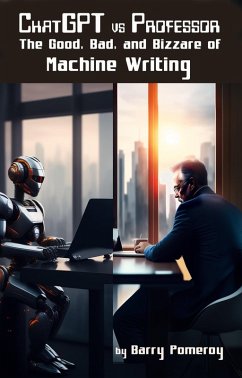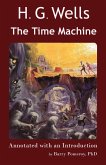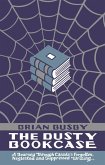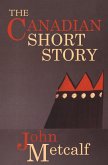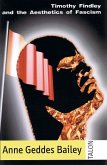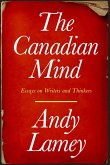The new ChatGPT tool from OpenAI has rapidly garnered media attention and millions of users. Although less effective sentence generators have existed for years, ChatGPT's novelty has drawn both the public and the reporters' interest, and its possibilities have led to it becoming the fastest growing app in history. But when examined more closely, its seemingly miraculous capabilities are ultimately disappointing, at least when it comes to the academic writing of my discipline. Like many of my peers, I wanted to test ChatGPT's capabilities against the strictures and demands of my field. A physics professor asked it thorny questions about cosmology, and a programmer used it to generate code, but I was more interested in whether the machine had been programmed carefully enough that it could be used by my students to cheat on their papers.
I tried it with several prompts from a list of typical essay topics, and found the AI generated essays were summary-dependent, vague, fluent in terms of diction but in substance nearly vacuous, and filled with elementary compositional missteps as well as factual errors. A decent command of diction and the ability to generate grammatically correct sentences is not quite the same thing as producing meaning. I tried the AI on three novels by H. G. Wells and Charlotte Perkins Gilman's Herland, as well as several short stories by Thomas King and others.
Although I had been initially interested in how my students might use the tool to plagiarize, I soon became intrigued by ChatGPT's mistakes. Just as errors in meaning expose a student's facility with argument, the AI's missteps tell us much more about its nascent capabilities than the accuracy of its grammar or spelling.
It glibly invented material it could not access, indulged in falsehood when confronted, and wrote essays with a gleeful disregard for logic and physics. Ultimately, to rework a quote from H. G. Wells, it has developed in the most wonderful way the distinctive silliness of a social-media-obsessed humanity without losing one jot of the natural folly of a semi-informed monkey on a typewriter.
I tried it with several prompts from a list of typical essay topics, and found the AI generated essays were summary-dependent, vague, fluent in terms of diction but in substance nearly vacuous, and filled with elementary compositional missteps as well as factual errors. A decent command of diction and the ability to generate grammatically correct sentences is not quite the same thing as producing meaning. I tried the AI on three novels by H. G. Wells and Charlotte Perkins Gilman's Herland, as well as several short stories by Thomas King and others.
Although I had been initially interested in how my students might use the tool to plagiarize, I soon became intrigued by ChatGPT's mistakes. Just as errors in meaning expose a student's facility with argument, the AI's missteps tell us much more about its nascent capabilities than the accuracy of its grammar or spelling.
It glibly invented material it could not access, indulged in falsehood when confronted, and wrote essays with a gleeful disregard for logic and physics. Ultimately, to rework a quote from H. G. Wells, it has developed in the most wonderful way the distinctive silliness of a social-media-obsessed humanity without losing one jot of the natural folly of a semi-informed monkey on a typewriter.
Dieser Download kann aus rechtlichen Gründen nur mit Rechnungsadresse in A, B, CY, CZ, D, DK, EW, E, FIN, F, GR, H, IRL, I, LT, L, LR, M, NL, PL, P, R, S, SLO, SK ausgeliefert werden.

